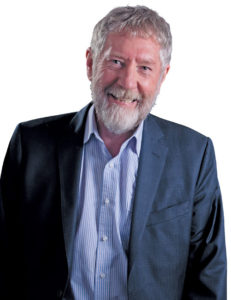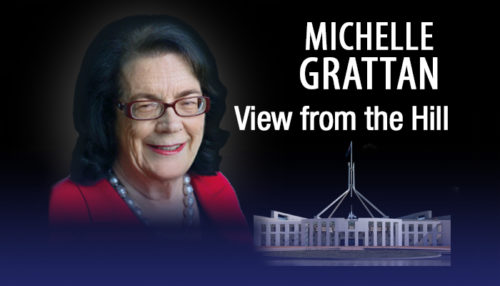
“The US is well experienced at blaming others when it comes to the spread of disease. There is significant evidence, for example, that the 1918-19 so-called Spanish flu originated in Kansas,” writes political columnist MICHAEL MOORE.
BLAMING others is the most popular technique in current politics.

By blaming the World Health Organization and China over COVID-19, American President Donald Trump has moved the political focus.
The US is well experienced at blaming others when it comes to the spread of disease. There is significant evidence, for example, that the 1918-19 so-called Spanish flu originated in Kansas and was taken to Europe by the US military towards the end of World War I. From there it spread across the world. And we still call it the “Spanish Flu” instead of the “Kansas Flu”.
It is not as though warnings from health organisations were not clear and loud.
For years the World Federation of Public Health Associations has been arguing that it is time to increase expenditure on prevention from the average of less than 3 per cent of health budgets in developed countries.
This association, representing more than 100 public health associations internationally, has argued for a focus on prevention, protection and health promotion. The advocacy has largely fallen on ears deafened by the sound of conservative ideology.
The World Health Organization is not perfect. However, assigning blame on it as though it’s done nothing flies in the face of reality. It is important to keep in mind that as a UN body it has no power over other countries. It receives its mandate and finance from the World Health Assembly, which is a meeting of health representatives from most nations on earth.
The former director-general of the WHO, Dr Margaret Chan, as far back as 2012 warned of impending disaster as she attempted to move countries from complacency to action. She told the executive meeting of the WHA that “the challenges facing public health, and the broader world context in which we struggle, have become too numerous and too complex for a business-as-usual approach.”
Dr Chan later approached the World Federation of Public Health Associations requesting guidelines to improve public health in a globalised world. The outcome was “The Global Charter for the Public’s Health”. One of the prime objectives was to “ensure a comprehensive approach to tackling the threats to health everywhere”.
This charter was released in 2016 and became the force for change during my own time as a member of the WFPHA’s governing council and as president. It was designed to work hand-in-hand with the UN Sustainable Development Goals. However, governments preferred to spend money on treatment rather than prevention.
Protection, prevention and health promotion! Where governments have paid attention to these three guiding principles countries have fared reasonably well through COVID-19. However, where funding to these areas has been slashed, governments have not been in an appropriate position to handle the pandemic.
These messages ran parallel to so many similar ones from the WHO. Was the WHO approach perfect? No. Could they have done more? Probably. However, it should be noted that the entire budget for the WHO is similar to that of a major tertiary teaching hospital in Germany or the US.
And, to rub salt into the wound, the US was already recalcitrant in its dues to the WHO when President Trump announced a moratorium on funding from that country. This was in marked contrast to Germany, where Chancellor Angela Merkel saw the need for co-ordination and boosted her country’s contribution to the WHO.
Trump has been trying to blame China for his own failings since becoming President. Aligning the WHO with China, despite having no evidence, moved the focus from his own dramatic failures in handling COVID-19 in the US. With more than 1.5 million cases and approaching 100,000 deaths, he really does have something to hide.
The Sharri Markson story in the “Daily Telegraph” suggesting a “Five Eyes” intelligence leak provided evidence COVID-19 emerged from a Wuhan laboratory was not only false – it was not leaked by any of the five intelligence organisations.
Sadly, it was part of the US propaganda and it appears was leaked through the US embassy in Canberra.
The blame game is alive and well. It is not so long ago that a disastrous and expensive war was conducted on the basis of “weapons of mass destruction”. Just as the truth is the first casualty of war – it seems it is also the first casualty of a failed political response to a pandemic.
Michael Moore is a former member of the ACT Legislative Assembly and an independent minister for health. He was president of WFPHA 2016-18.
Who can be trusted?
In a world of spin and confusion, there’s never been a more important time to support independent journalism in Canberra.
If you trust our work online and want to enforce the power of independent voices, I invite you to make a small contribution.
Every dollar of support is invested back into our journalism to help keep citynews.com.au strong and free.
Thank you,
Ian Meikle, editor





Leave a Reply